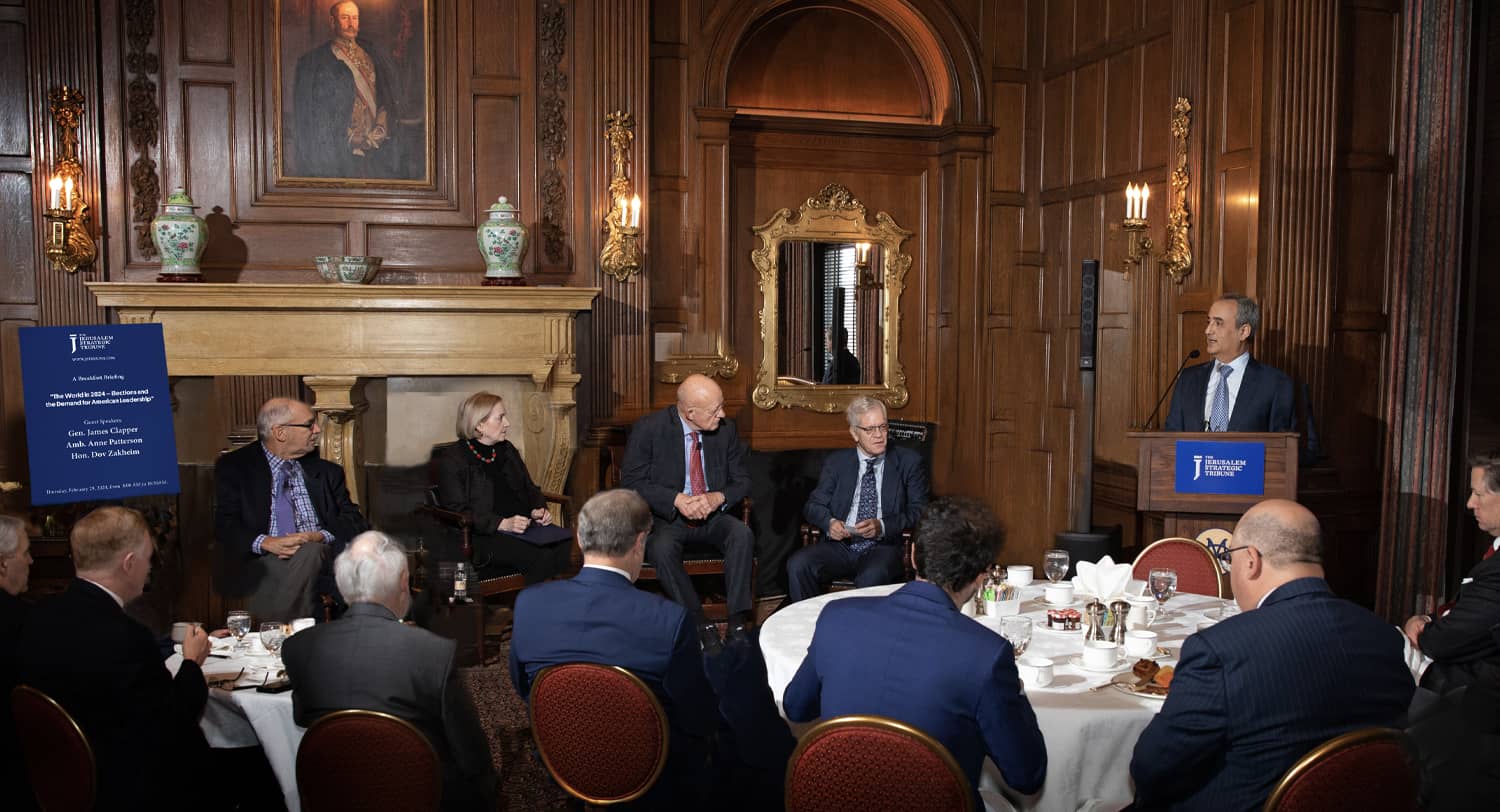Ambassador Anne Patterson, General Jim Clapper, and former Under Secretary of Defense Dov Zakheim – representing the worlds of diplomacy, intelligence and defense – led the discussion on February 29, at the Metropolitan Club in Washington.
JST publisher Ahmed Charai began by surveying the many challenges facing the United States in this year
- China’s economic and military might be vast – and it seems to want to use it.
- Russia’s war in Ukraine is NATO’s biggest challenges since the Berlin Wall was bricked up — more than half a century ago.
- And Iran’s proxies are killing American soldiers — and trying to ignite a regional war.
Following are several key points that emerged from the discussion.
Are America’s allies free riders on the regional and global security provided by America? The NATO allies are contributing more, one noted. Eighteen NATO countries are publicly committed to reaching in 2024 the benchmark of two percent of gross domestic product (GDP) on defense spending – up from only three countries ten years ago. While several American presidents may take credit for this increase, it was another president – Putin – who actually provoked it by invading Ukraine and threatening NATO members.
Others thought defense spending of two percent of GDP was not an accurate measure of real contributions to collective defense. For instance, while Greece does spend two percent, it’s nearly all on salaries and pensions with very little on hardware whereas several Nordic countries, currently below the two percent threshold, do contribute significantly to hard defense. The spending benchmark also doesn’t take into account other forms of contribution – intelligence sharing and military basing. Another view was that the challenge ahead for NATO was not only increased defense spending but also greater interoperability between the different countries’ militaries.
In East Asia, discussion centered on Taiwan, where defense steps in the face of increased Chinese assertiveness are comparatively less than similar efforts in Japan, Australia and the Philippines. A recent visitor to Taiwan noted a certain amount of complacency perhaps fostered by the lack of any military operations over the past 70 years.
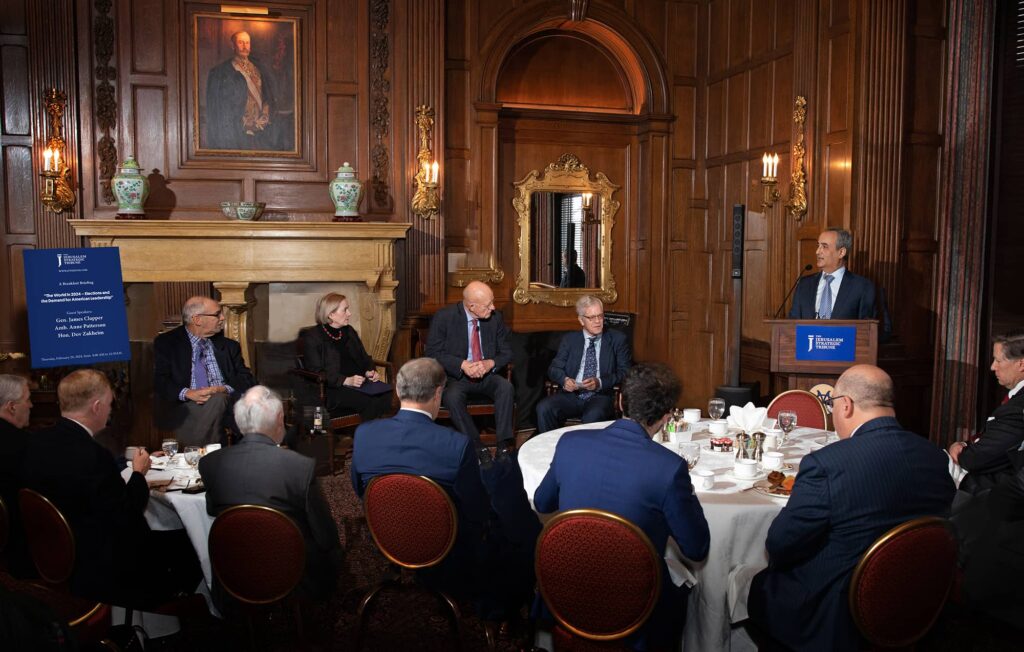
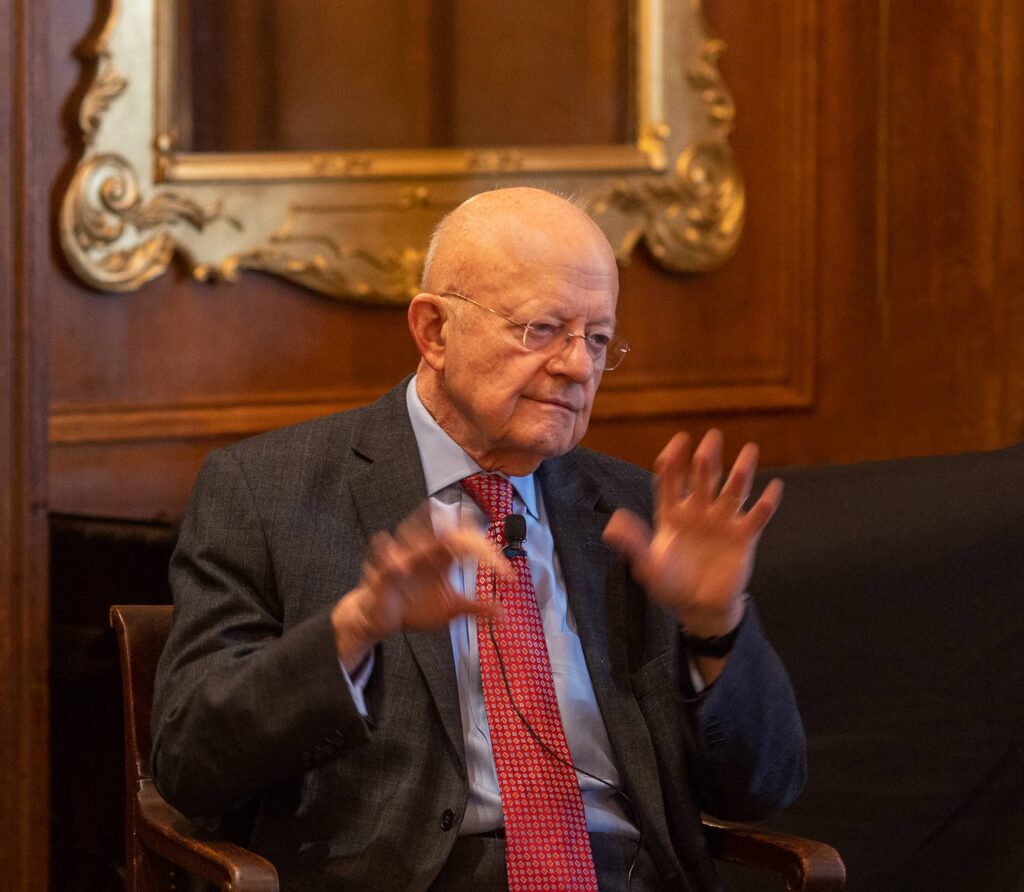
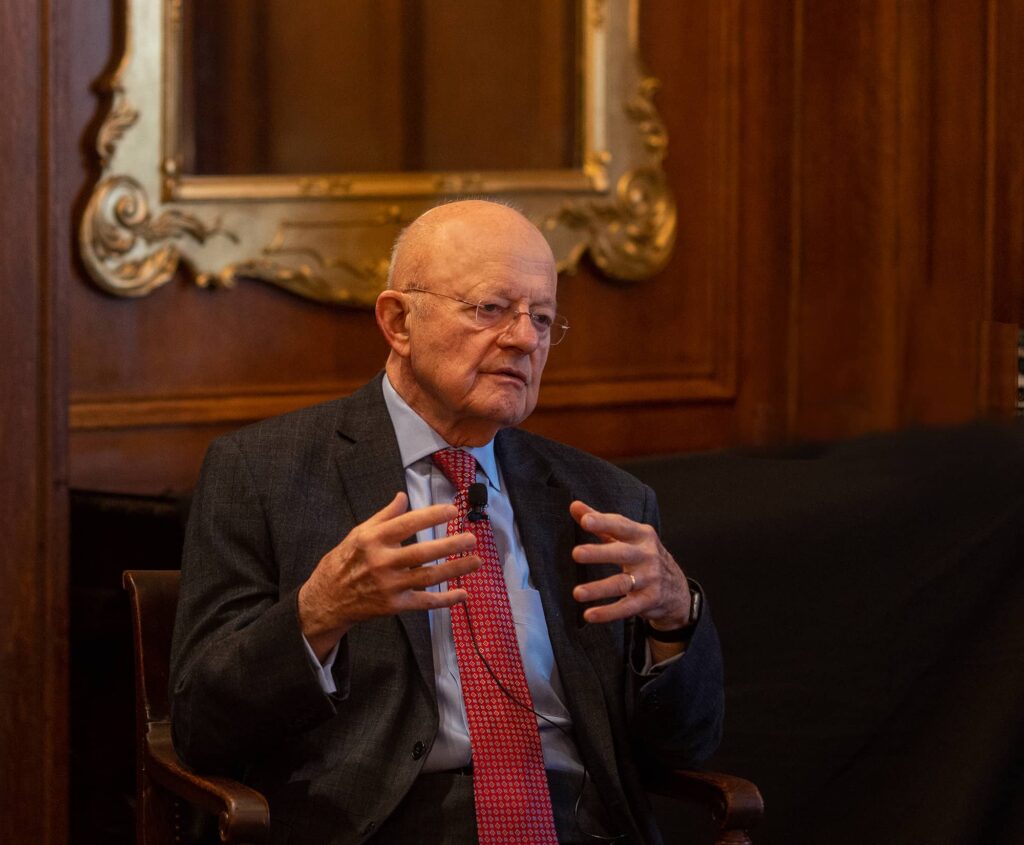


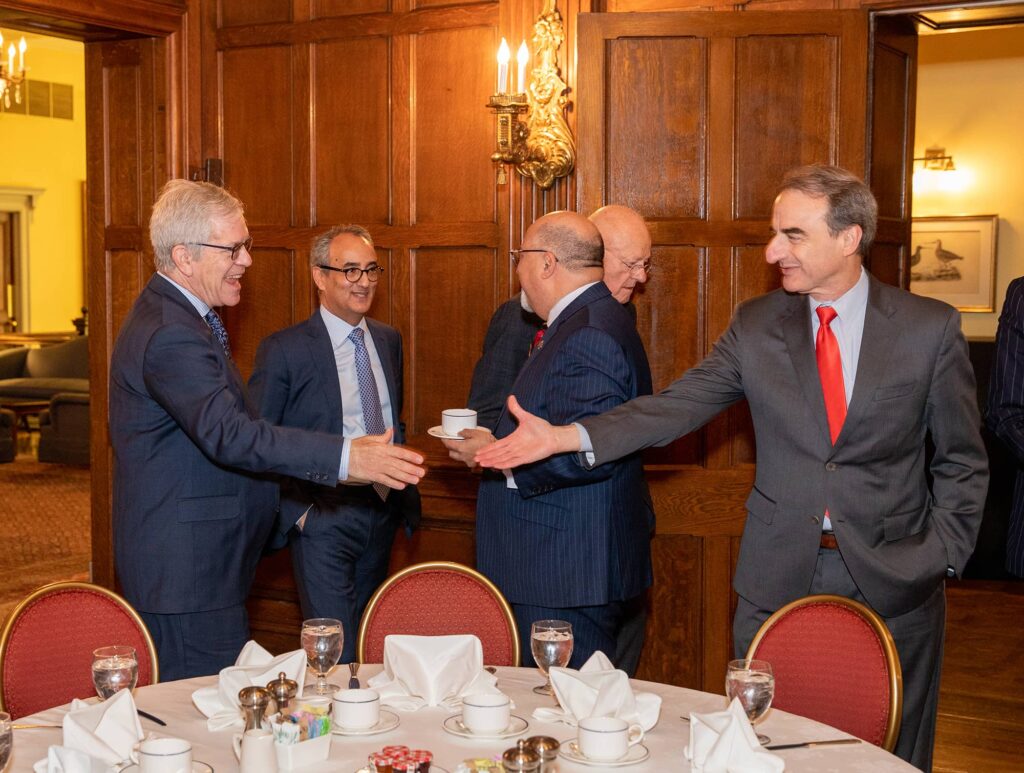

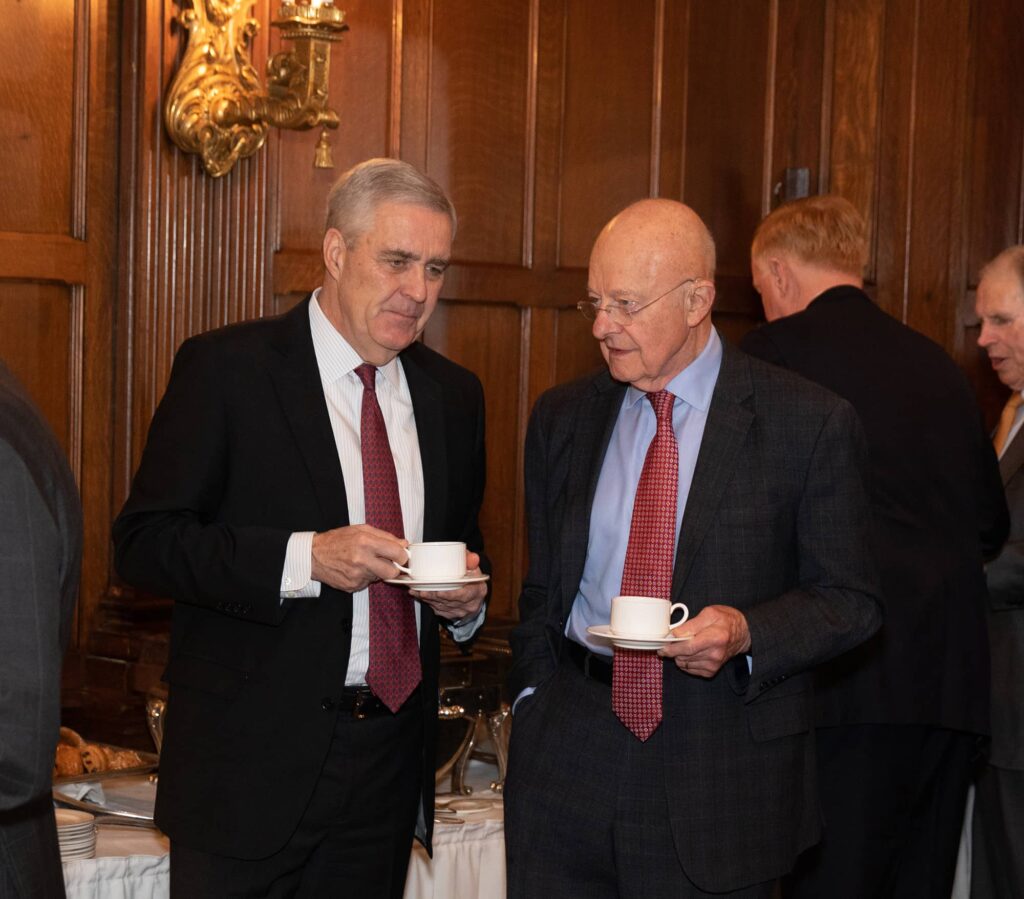


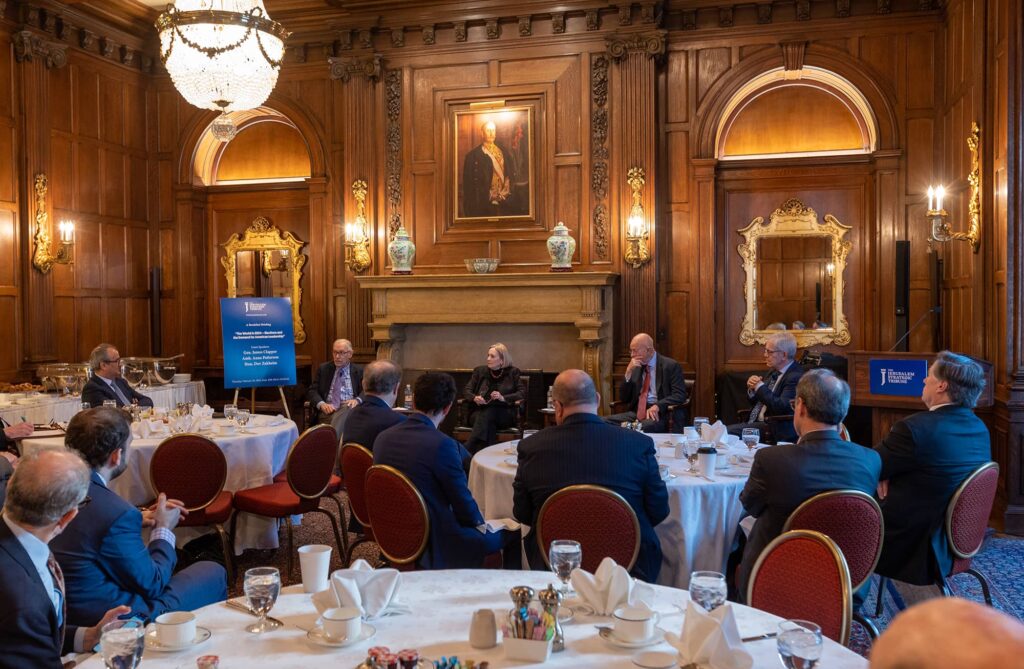


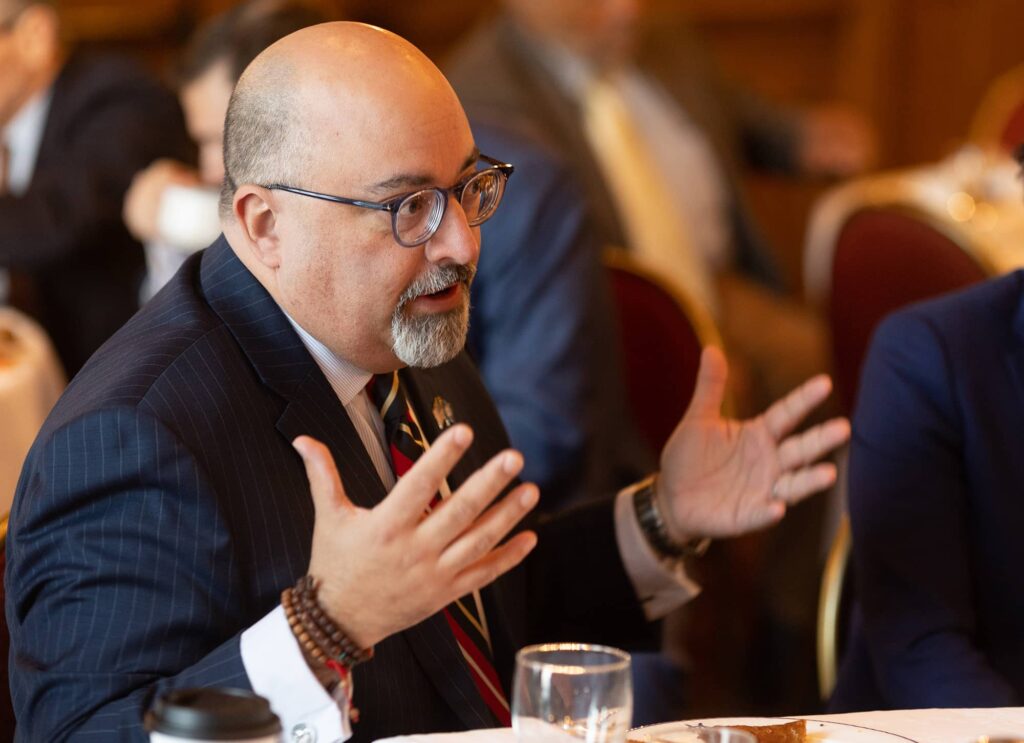
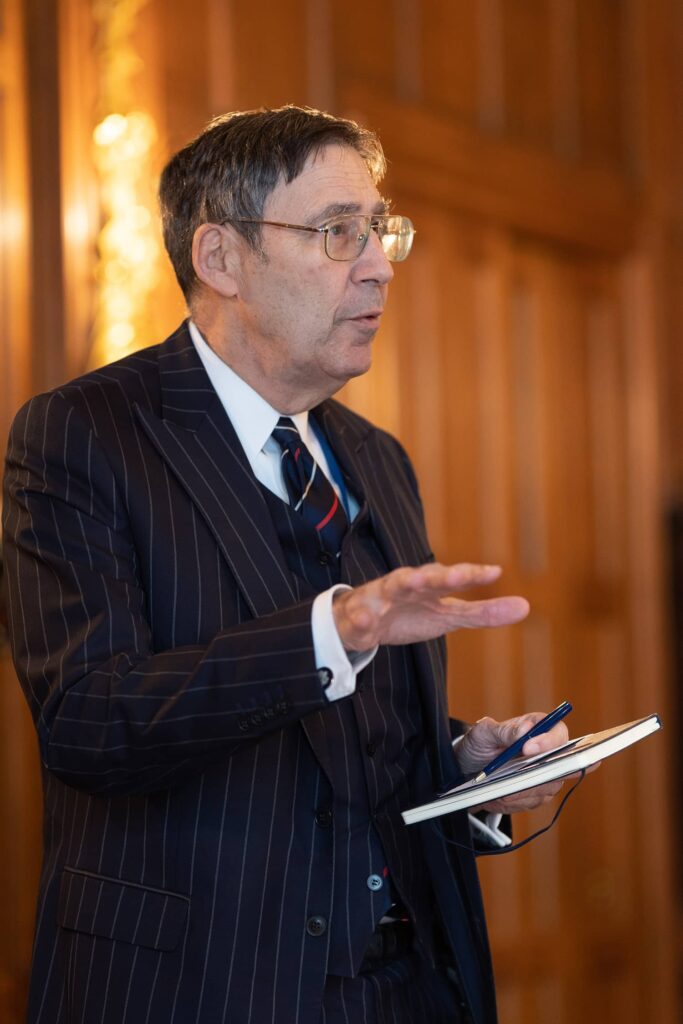
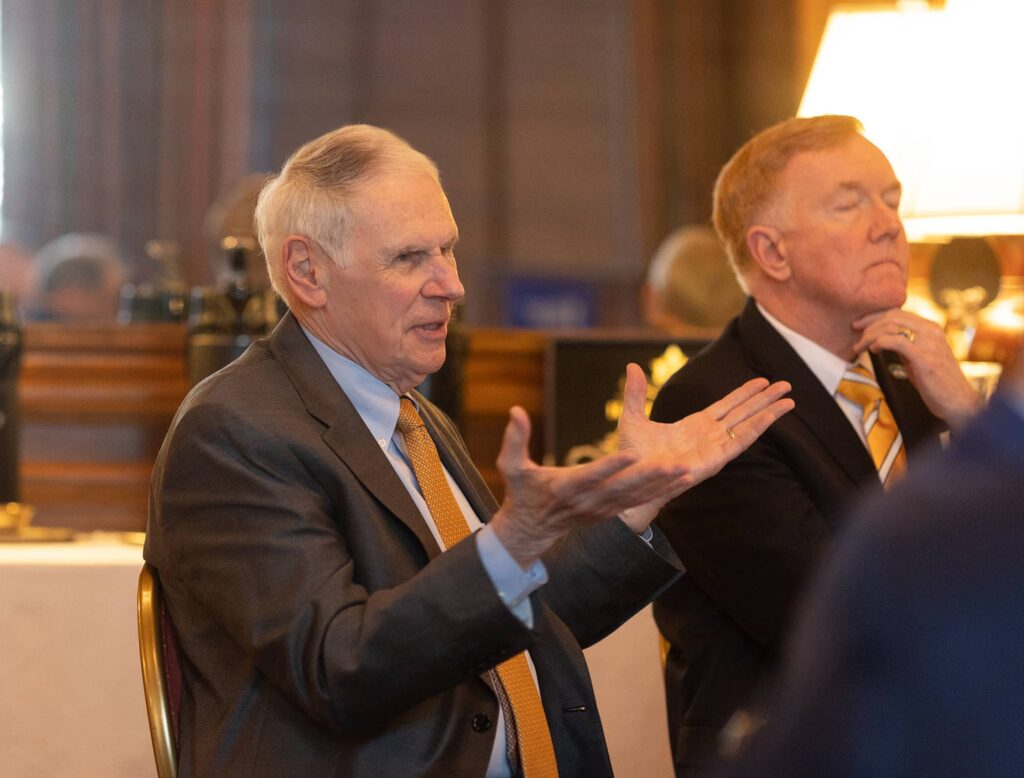
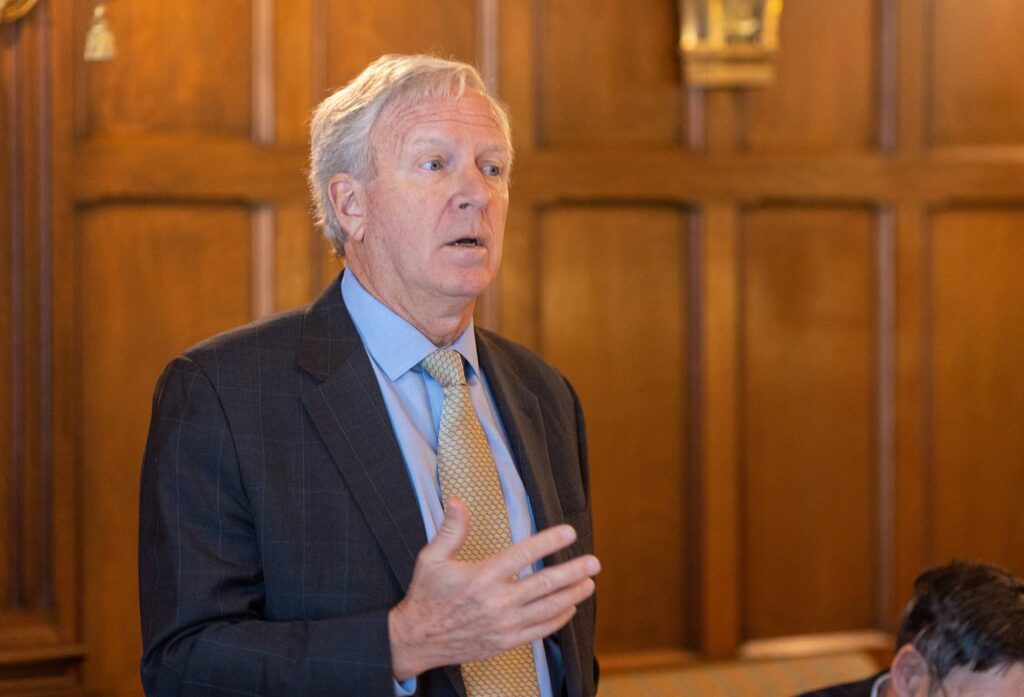
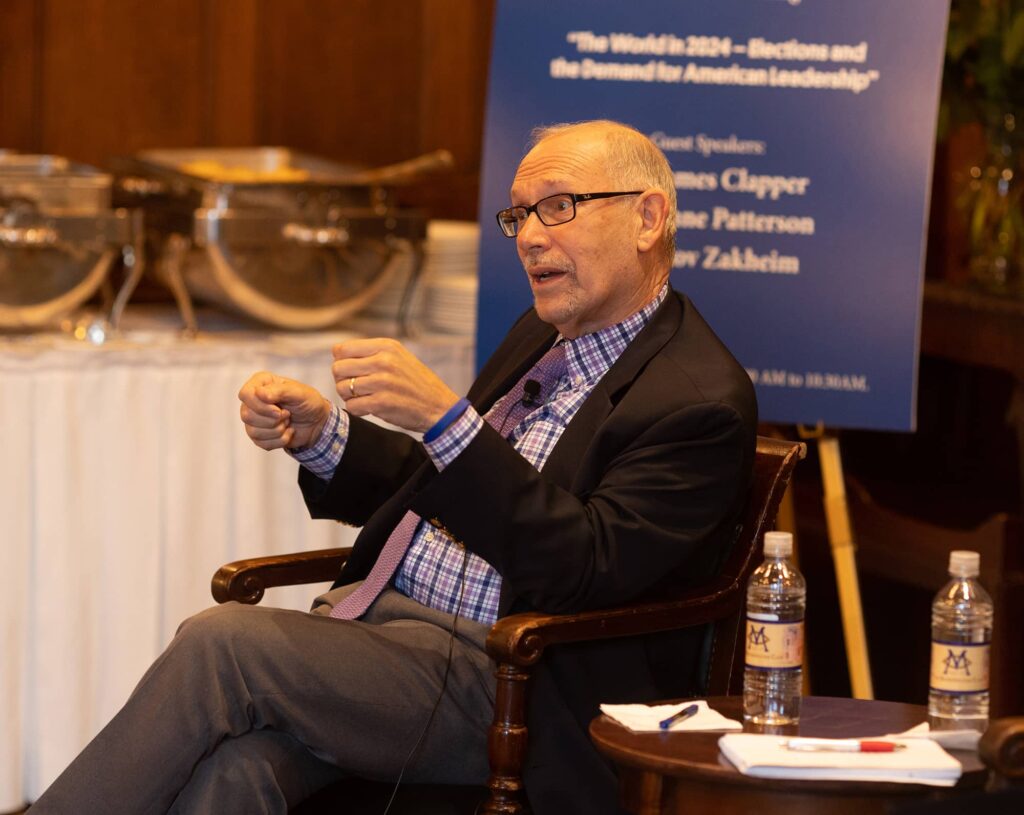
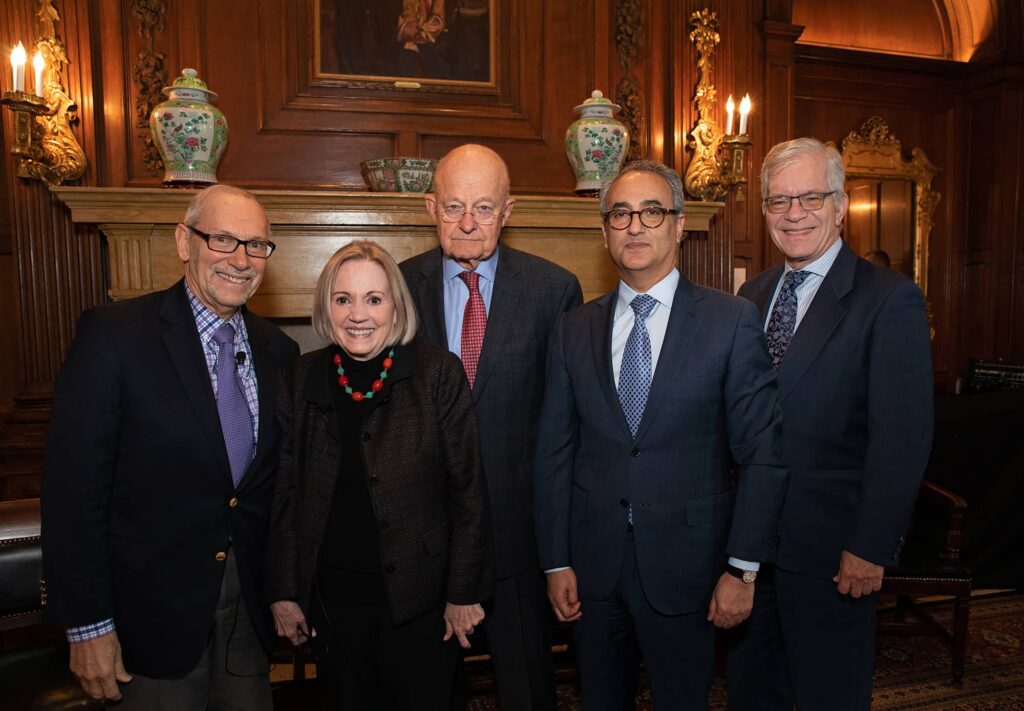
On international trade, one participant was concerned with the similar positions of both American political parties in turning away from free trade initiatives. Outlining the negative impact of Brexit on the UK economy, he hoped the US wasn’t about to engage in a similarly destructive international economic policy.
Another participant argued for a more pragmatic approach to US engagement in the world, with a focus on accepting the world as it was and meeting both partners and adversaries where they were, not where we wanted them to be. He contrasted American idealism with China’s or India’s pragmatism. Others thoughts that US commitments were different from those of India or China and thus the US couldn’t adopt the same kind of transactional approach.
Turning to the Middle East, several experts were skeptical of the rumored US-Saudi deal (providing uranium enrichment technology for civilian nuclear power, together with a security agreement) but took comfort that any such deal would receive careful congressional scrutiny. Several were critical of Israel’s failure to think strategically beyond the current war in Gaza and envision a way forward wit the Palestinians, after Hamas is removed from power. One argued for a multi-national mission, organized by the US but including many others, to replace the Israeli military in Gaza.
There was some optimism that the India- Middle East corridor announced at last year’s G-20 meeting – a series of coordinated national efforts to upgrade and build new infrastructure to boost trade between South Asia and Europe – would also serve to box in Iran and help to isolate it.
